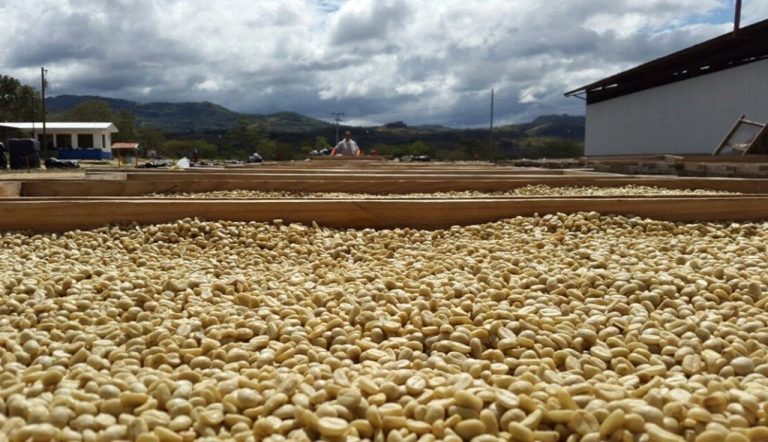7 de diciembre 2023

“NicaraguAmor” Cultural Caravan for Nicaraguans in the USA

PUBLICIDAD 1M
PUBLICIDAD 4D
PUBLICIDAD 5D
Producers do not know how they will finance the harvest, and they fear that companies will begin to pay them less for their export coffee

CISA Exportadora is the leading coffee exporter in Nicaragua. Photo: Taken from the Las Nubes drying facility Facebook
The company CISA Exportadora suddenly suspended its operations in Nicaragua, sources from the Nicaraguan coffee sector confirmed to CONFIDENCIAL. The suspension of processing at the ‘El Carmen’ coffee processing plant in the Pacific and the ‘San Carlos’ in the northern part of the country, has coffee growers worried since they are the leading exporter of coffee in the country, as well as a source technical and financial support.
CISA Exportadora is owned by RCG Capital Management, which several months ago bought the operations and investments of Mercon Coffee Group, led by businessman José Antonio Baltodano. Now this international company has decided to withdraw its operations from Nicaragua.
Since last weekend, producers who usually work with the company were informed not to take their coffee to the collection centers, because they would be closed and would not receive the product. Many of these coffee growers obtained loans to finance their harvest activities. Others were simply selling their harvest to the company.
“We only know that they closed purchases since the weekend, and that they do not answer our calls,” so “there is panic among coffee growers,” admitted a Jinotega producer.
Another producer only managed to explain that “I sell coffee to them. On Friday they told me that they would be auditing Saturday and Sunday, and that is why they were not going to receive coffee in the stockpiles.”
The cessation of operations is causing severe problems for the producers that CISA Exportadora “enabled” through Mercapital, which functioned as a kind of microfinance institution for the group, who will now, presumably, become debtors of the entity that buys that debt.
“With this disaster they do not receive our coffee because the mills are closed, and in any case, we do not want to deliver our coffee, because it could remain in limbo,” said a Matagalpa producer. He detailed an additional problem: if before producers like him delivered the grain in the company’s stockpiles, now they have to look for trucks to transport the product further.
The severity of the problem increases when considering the moment in which it occurs: when producers require financing to pay the cost (salaries, food, lodging, transportation) of the labor doing the harvesting; to pulp the grain (those that do), and to take it to the exporters’ collection centers.
An economist, who spoke anonymously, predicted that producers will also be affected by the decrease in the number of companies competing to capture the beans to sell on international markets where, in addition to CISA Exportadora, OLAM and Atlantic also compete, as well as many others of lesser significance.
“This will have an important economic impact, since it finds the coffee growers in the middle of the harvest, and now the marketing companies that remain will have greater power to negotiate downward the prices of the coffee that they sell to them,” he explained.
This has already begun to happen, according to the testimony of the Matagalpa producer, who declared that the remaining exporters are paying 400 córdobas (11 USD) less for the quintal of dried parchment coffee. The only ones who are saved from this drain on their income are those who deliver milled coffee, because the product is settled for them in accordance with international prices.
An additional situation that worries the producers is that the company has in its hands the deeds that the producers gave them to support their mortgages, which puts them on the defensive when considering the legal uncertainty prevailing in the country, especially regarding issues of property. With Mercapital closed they are not in possession of their deeds and cannot go to other financial entities to request new authorizations.
Another element that will affect many producers is the fact that if CISA is not reactivated, the mills that continue operating do not have the capacity to process the 1.5 million quintals of coffee per year that the now defunct company handled.
The harvest of the 2023 – 2024 cycle is expected to be close to three million quintals, affected by weather reasons and lack of labor, among others.
This can be “disastrous for producers because we are in the middle of the harvest, affected by the fall of coffee caused by the rain. Furthermore, the bean does not want to ripen and remains green. Prices are fluctuating, in addition to the shortage of labor. I hope the producers are not discouraged by all this,” said another producer concerned about the new situation.
This article was published in Spanish in Confidencial and translated by Havana Times. To get the most relevant news from our English coverage delivered straight to your inbox, subscribe to The Dispatch.
PUBLICIDAD 3M
Periodista nicaragüense, exiliado en Costa Rica. Durante más de veinte años se ha desempeñado en CONFIDENCIAL como periodista de Economía. Antes trabajó en el semanario La Crónica, el diario La Prensa y El Nuevo Diario. Además, ha publicado en el Diario de Hoy, de El Salvador. Ha ganado en dos ocasiones el Premio a la Excelencia en Periodismo Pedro Joaquín Chamorro Cardenal, en Nicaragua.
PUBLICIDAD 3D